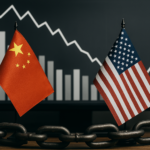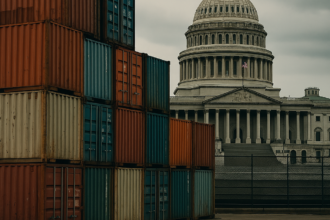With the announcement of the most aggressive trade tariffs in recent times, the United States under Trump is once again turning on the gears of global protectionism. But this time, the response came faster than in other eras: Canada, Mexico and China have already signaled direct retaliation, reigniting a cycle of distrust and barriers that threatens international trade.
The Canadian government, for example, announced tariffs of 25% on North American products in immediate response. Mexico and China are also preparing similar measures, not only as retaliation, but as a way of strategic repositioning in an increasingly fragmented chessboard.
The Invisible Cost of Retaliation
The economist Frederic Bastiat reminds us that, in the actions of the State, we must look not only at what we see — but at what we do not see. What we see are “nationalist” measures that “defend jobs” and “protect local industry”. What we do not see is diluted cost, but immense, of each new trade barrier:
- Consumer price increase
- Reduction of competitiveness
- Erosion of trust between business partners
Retaliations create a ripple effect that disorganizes production chains, makes imports more expensive and isolates economies that, in theory, depend on openness to grow.
Free market: antidote or illusion?
It is tempting in times of crisis to propose closure as a solution. But free markets remain the only sustainable path for countries that want productivity, innovation and capital attraction. And this is true both for the United States and for countries that are responding to its new aggressive stance.
Brazil in the crossfire
As a relevant but not a priority partner, Brazil may be one of those affected collaterally. The worst decision it could make now is imitate the US and follow the path of protectionismThis would only reinforce instability and drive away foreign investment.
Conclusion
The unfolding tariff war is less about steel or cars — and more about power and fear. For those who value economic freedom and fiscal responsibility, this moment demands determination: resisting the siren song of protectionism and reaffirming the values of free trade, competition and global integration.





